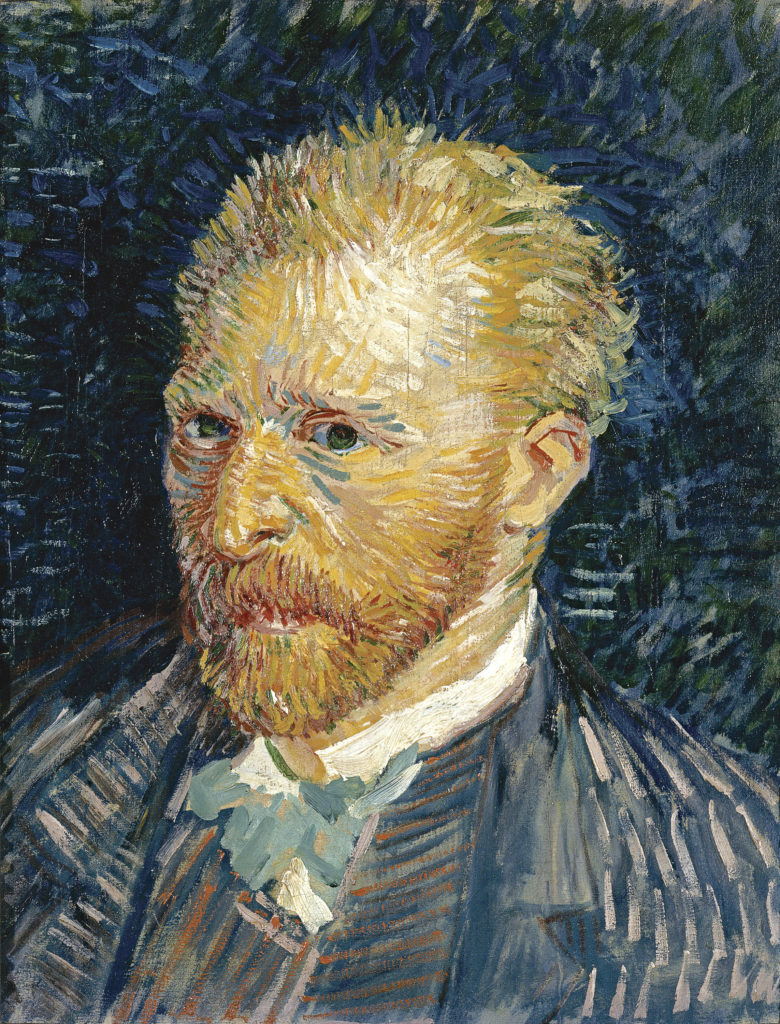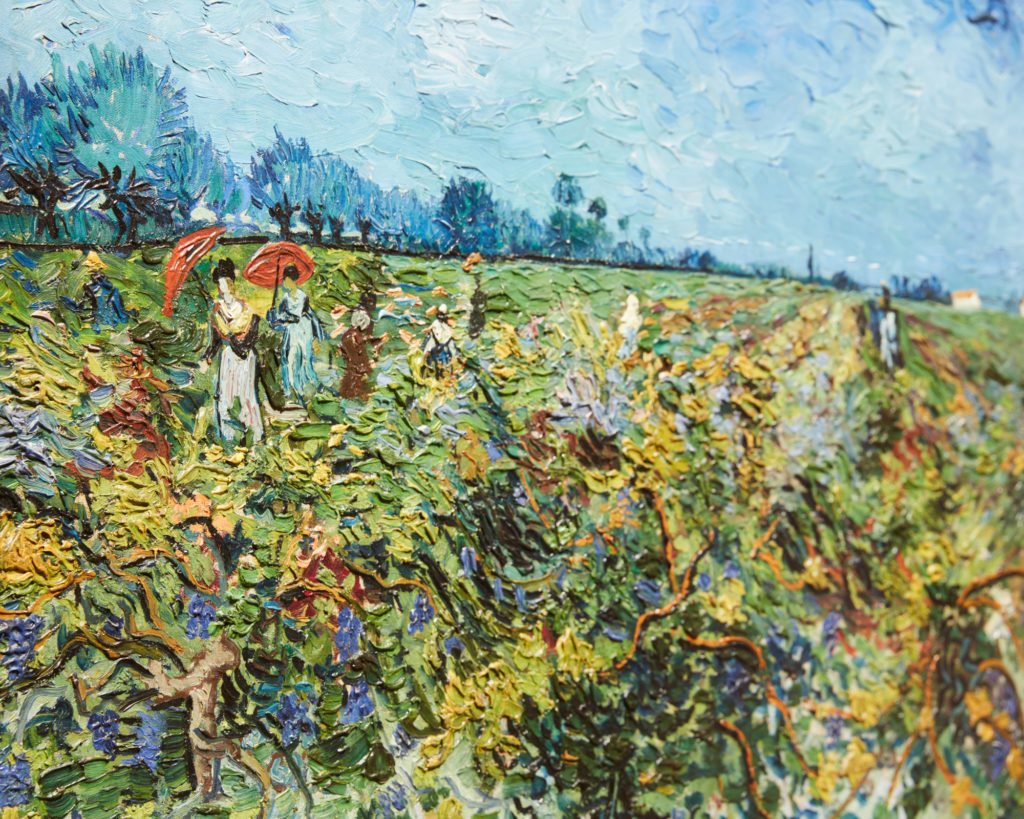The National Gallery of Victoria’s latest exhibition, Van Gogh and the Seasons, is both educational and visually stunning.

As with all NGV exhibitions there’s plenty of information about the artist and the inspiration for his work. For Van Gogh that inspiration was nature’s four seasons – summer, autumn, winter and spring.

According to the gallery the theme of the exhibition was the brainchild of its curator, Sjraar van Heugten. The independent art historian and former Head of Collections at the Van Gogh Museum, realised there had never been a major exhibition dedicated solely to Van Gogh’s love of the seasons.
As a result the Van Gogh works on show are displayed by the season in which they were painted. Informative labelling throughout the exhibition explains the location of the painting and the reasons for the work.

We discover that for Van Gogh the seasons represented the circle of life – birth, bloom, maturity and death. We also learn Van Gogh was interested in the lives and labours of the working class including miners and field workers, hence their inclusions in a number of paintings.
The artworks also depict places that were the setting for many defining moments in the artist’s tumultuous life. These include the Dutch region of Brabant, where Van Gogh was born in 1853 and lived for much of his early life; Arles, where the artist experienced his most defining period of creativity; Saint-Rémy de Provence, where he was treated for mental illness in the Saint-Paul-de-Mausole asylum; and Auvers-sur-Oise, where he committed suicide in 1890 at the age of 37.

The exhibition also includes works from Van Gogh’s own art collection which played a major role in his development as an artist. They include Japanese woodblock prints, etchings, wood engravings and lithographs.
Letters Van Gogh wrote to his brother, Theo, form the basis of much of the information displayed. An introductory video at the start of the exhibition (narrated by David Stratton) includes actor David Wenham reading some of Van Gogh’s letters to Theo. Supporting the words are stunning pictures from Australian sites including Victoria’s Cruden Farm and Lavandula Swiss Italian Farm as well as European sites significant to Van Gogh including Arles in France and Zundert in Holland.

It’s this educational component that adds to the wonderful experience of seeing the largest display of Van Gogh works ever shown in Australia (around 50 works), most of which have never been seen here before.
Van Gogh and the Seasons is on display at NGV International until 12 July as part of the Melbourne Winter Masterpieces program.
Visit the NGV website for more information and tickets.
Jenny Burns visited the exhibition as a guest of the National Gallery of Victoria.
Visit travelswithjb,com.au-exhibitions for more exhibition reviews.
- exhibitions, Melbourne, reviews
Subscribe My Newsletter
Unsubscribe at any time.




